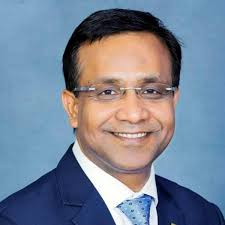
The Nigerian Shippers’ Council (NSC) has advised service operators in the industry to register their category of businesses accordingly.
According to it, registration in specified categories will determine their scope of operation in the industry.
Mr Hassan Bello, Executive Secretary, NSC, gave the advice at a sensitisation clinic on Registration of Regulated Service Providers in the Nigerian Ports organised for freight forwarders, logistics providers and truckers.
Bello, represented by Mr Cajetan Agu, Director, Consumer Affairs Department, NSC, listed the categories to include government agencies, logistics service providers, shipping agencies, companies and lines, terminal operators and other port service providers and users.
The executive secretary, while answering questions by stakeholders, noted that if one operated as a terminal, a logistics provider and barge operator, the person would need to register each to be able to operate those businesses.
“This registration is in compliance with the law.
“It will help to know your customers, authenticate the genuineness of port service providers and users, encourage professionalism, and create a pool of operators; thus, the need for all to register.
“Registration is of three categories and they are the individuals, organisation and partnership categories.
“Rendering service as an individual will enable the council to monitor the individual to improve service delivery,” he said.
Bello told stakeholders that the focus of the registration was for service delivery and as such, comparing it with that of the Council for the Regulation of Freight Forwarding in Nigeria (CRFFN) ,which had to do with training and certification, was not right.
The executive secretary said that it was the mandate given to NSC as a service provider that enabled it to carry out these functions and as such, failure to register would attract some sanction.
According to him, one-month’s `grace’ has been given to operators to register.
He listed some of the functions to include the provision of guidelines for tariffs setting for all regulated service providers, monitoring and enforcement of standards of service, encouraging competition, investment and others.
Also, Dr Osita Chukwu, National President, Save Nigeria Freight Forwarders, Importers and Exporters Coalition, urged the council to look inwards while regulating.
According to him, categorising all freight forwarders with the same amount of money is not good as some are established while others are still coming up.
Mr Ananias Anderson from the Nigerian Association of Road Transport Owners (NARTO) , called for harmonization of members of the association as individuals who are fragmented and `scattered’’ around the country would like to come as a body.
Anderson urged the council to look into it.
Mr Stanley Ezenga, National Publicity Secretary, National Association of Government Approved Freight Forwarders (NAGAFF), urged the council to let freight forwarders register as a group since shippers could do so.
Also, Dr Frank Farinto, Association of Nigerian Licensed Customs Agents (ANLCA), urged the NSC to synchronise with the CRFFN on regulation, so that it would not be double jeopardy for freight forwarders.
“This is a laudable project for the shippers’ council to identify every stakeholder that operates in the port.
“Although the amount is minimal, they should liaise with CRFFN to ensure this does not become double jeopardy for freight forwarders,” he said.
Mr Remi Ogungbemi, National President, Association of Maritime Truck Owners (AMATO), noted that the registration into categories was a welcome development.
He said that, however, it needs to be structured so that it would not be too cumbersome for stakeholders.






